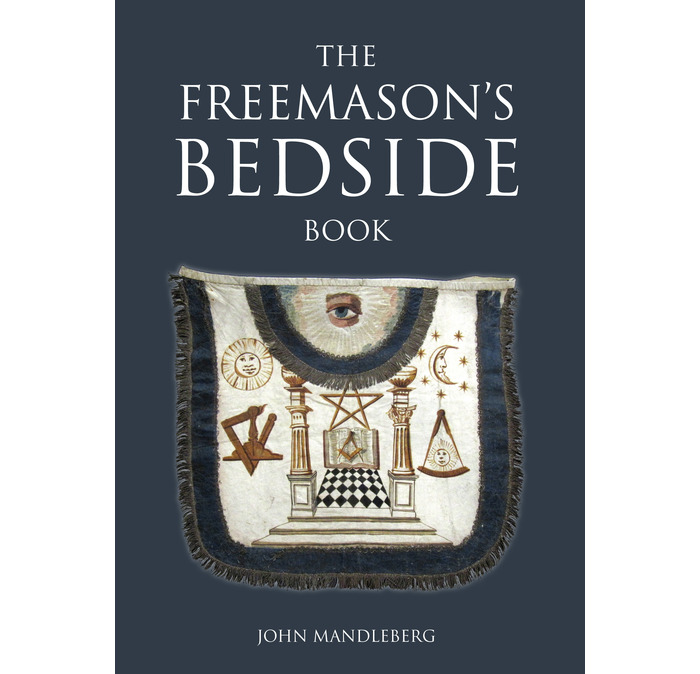SERIOUS BUT NOT SOLEMN
WRITTEN BY THE LATE JOHN MANDLEBERG, THE FREEMASONS BEDSIDE BOOK IS AN INVIGORATING COLLECTION OF BITE-SIZED MATERIAL FROM A RESPECTED SCHOLAR
John Mandleberg was both a scholar and gentleman who thoroughly enjoyed his Freemasonry, and this shines out in his last masonic work, The Freemasons Bedside Book. The varied content from stories and songs to poems and translations takes us on a journey from serious pieces to light-hearted anecdotes and reflects the authors wide-ranging research.
This, then, is a very unusual book. Typically, masonic historians have only added to the confusion of our origins by highly speculative research. As masonic historian John Hamill puts it: There are two main approaches to masonic history: the authentic or scientific approach, in which theory is built upon and developed, out of verifiable facts and documentation; and the non-authentic approach, in which attempts are made to place Freemasonry in the context of the Mystery tradition by correlation of the teachings, allegory and symbolism of the Craft with those of the various esoteric traditions. This does not apply to this book, which captures the writings of others to emphasise Freemasonrys more amusing side.
It cannot be denied that members are taught many descriptions of Freemasonry and these tend to centre on their lodge and the ritual book. The Freemasons Bedside Book takes its reader beyond this. Covering so many years of masonic history, the book uses language that contrasts with the plain English in which Freemasons now communicate. Although some of the old-fashioned language of the masonic writers had style, it would be unintelligible to many members let alone the non-mason. It is therefore fair to say that while this book is full of humour, it is very much for the serious Freemason.
Mandlebergs book effortlessly moves from anecdote to verse and back again. One fascinating piece covers the opening of an East End lodge many years ago. The next minute we are enthralled by two poems from Rudyard Kipling before moving on to another anecdote. This serves to whet the appetite and is a reminder of the authors varied research.
The book ends with the full sung version of the Tylers Toast. We could aptly apply its sentiments in memory of the author: John, we were happy to meet you, sorry to part with you and we will be happy to meet you again.
John Hamill - Freemasonry Today



 Click on the image to enlarge
Click on the image to enlarge


